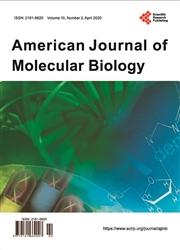Role of Tyrosine Kinase Receptors in Growth Factor Mediated Signal Transduction, with Specific Reference to MAPK/Rasand p13k-Akt Containing Pathways in Oncogenesis: A Qualitative Database Review
引用次数: 0
Abstract
Receptor Tyrosine kinases (RTKs) play a crucial role in the signal transduction pathways at cellular levels. RTK plays a vital role in cellular communica-tion and transmission of signals to the adjacent cells and regulates different functions of the cell, such as cellular growth, differentiation, metabolism and motility. RTK s triggers growth factor receptors such as epidermal growth factor, insulin growth factor-1 receptor, platelet derived growth factor receptor, and fibro blast growth factor receptor and vascular endothelial growth factor receptor, thereby initiating and regulating cell growth and proliferation. MAPK/RAS and PI3/AKT pathways are the major pathways of RTK’s function. Dysregulation of these RTK’s and pathways often leads to many diseases such as Noonan Syndrome, Logius Syndrome, CFC syndrome and different types of cancer. Point mutation and over expression of receptors and mutations in Ras leads to 30% of human cancers. Also over expression of different growth factor receptors by RTK too lead to several types of cancers as Glioblastoma, Thyroid cancer, Colon cancer and Non-small cell lung cancer. PTEN mutation in PI3/AKT pathway often leads to carcinoma relative to Thyroid, Skin, Large intestine, eye and Bone. Therefore, these RTK’s often used as targets for cancer therapies. The medical sector uses various酪氨酸激酶受体在生长因子介导的信号转导中的作用,具体涉及肿瘤发生中包含MAPK/Rasand p13k-Akt的途径:定性数据库综述
受体酪氨酸激酶(RTKs)在细胞水平的信号转导途径中起着至关重要的作用。RTK在细胞之间的通讯和信号传递中起着至关重要的作用,并调节细胞的不同功能,如细胞的生长、分化、代谢和运动。RTK激活生长因子受体,如表皮生长因子、胰岛素生长因子-1受体、血小板源性生长因子受体、成纤维细胞生长因子受体和血管内皮生长因子受体,从而启动和调节细胞的生长和增殖。MAPK/RAS和PI3/AKT通路是RTK功能的主要通路。这些RTK和通路的失调往往导致许多疾病,如Noonan综合征、Logius综合征、CFC综合征和不同类型的癌症。点突变和Ras受体的过度表达和突变导致30%的人类癌症。此外,RTK过度表达不同的生长因子受体也会导致胶质母细胞瘤、甲状腺癌、结肠癌和非小细胞肺癌等几种类型的癌症。PI3/AKT通路PTEN突变常导致甲状腺、皮肤、大肠、眼和骨相关癌。因此,这些RTK经常被用作癌症治疗的靶点。医疗部门使用各种
本文章由计算机程序翻译,如有差异,请以英文原文为准。
求助全文
约1分钟内获得全文
求助全文

 求助内容:
求助内容: 应助结果提醒方式:
应助结果提醒方式:


